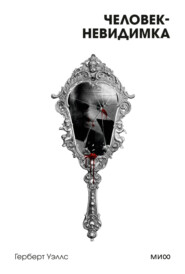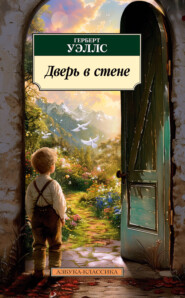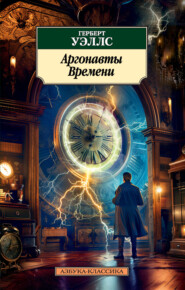По всем вопросам обращайтесь на: info@litportal.ru
(©) 2003-2024.
✖
Tono-Bungay
Настройки чтения
Размер шрифта
Высота строк
Поля
“I’m keeping a mind, George,” she explained.
“Eh?”
“Keeping a mind. Dogs I never cared for. It’s been a toss-up between setting up a mind and setting up a soul. It’s jolly lucky for Him and you it’s a mind. I’ve joined the London Library, and I’m going in for the Royal Institution and every blessed lecture that comes along next winter. You’d better look out.”…
And I remember her coming in late one evening with a note-book in her hand.
“Where ya been, Susan?” said my uncle.
“Birkbeck – Physiology. I’m getting on.” She sat down and took off her gloves. “You’re just glass to me,” she sighed, and then in a note of grave reproach: “You old PACKAGE! I had no idea! The Things you’ve kept from me!”
Presently they were setting; up the house at Beckengham, and my aunt intermitted her intellectual activities. The house at Beckengham was something of an enterprise for them at that time, a reasonably large place by the standards of the early years of Tono-Bungay. It was a big, rather gaunt villa, with a conservatory and a shrubbery, a tennis-lawn, a quite considerable vegetable garden, and a small disused coach-house. I had some glimpses of the excitements of its inauguration, but not many because of the estrangement between my aunt and Marion.
My aunt went into that house with considerable zest, and my uncle distinguished himself by the thoroughness with which he did the repainting and replumbing. He had all the drains up and most of the garden with them, and stood administrative on heaps – administrating whisky to the workmen. I found him there one day, most Napoleonic, on a little Elba of dirt, in an atmosphere that defies print. He also, I remember, chose what he considered cheerful contrasts of colours for the painting of the woodwork. This exasperated my aunt extremely – she called him a “Pestilential old Splosher” with an unusual note of earnestness – and he also enraged her into novelties of abuse by giving each bedroom the name of some favourite hero – Cliff, Napoleon, Caesar, and so forth – and having it painted on the door in gilt letters on a black label. “Martin Luther” was kept for me. Only her respect for domestic discipline, she said, prevented her retaliating with “Old Pondo” on the housemaid’s cupboard.
Also he went and ordered one of the completest sets of garden requisites I have ever seen – and had them all painted a hard clear blue. My aunt got herself large tins of a kindlier hued enamel and had everything secretly recoated, and this done, she found great joy in the garden and became an ardent rose grower and herbaceous borderer, leaving her Mind, indeed, to damp evenings and the winter months. When I think of her at Beckenham, I always think first of her as dressed in that blue cotton stuff she affected, with her arms in huge gauntleted gardening gloves, a trowel in one hand and a small but no doubt hardy and promising annual, limp and very young-looking and sheepish, in the other.
Beckenham, in the persons of a vicar, a doctor’s wife, and a large proud lady called Hogberry, “called” on my uncle and aunt almost at once, so soon in fact as the lawn was down again, and afterwards my aunt made friends with a quiet gentlewoman next door, a propos of an overhanging cherry tree and the need of repairing the party fence. So she resumed her place in society from which she had fallen with the disaster of Wimblehurst. She made a partially facetious study of the etiquette of her position, had cards engraved and retaliated calls. And then she received a card for one of Mrs. Hogberry’s At Homes, gave an old garden party herself, participated in a bazaar and sale of work, and was really becoming quite cheerfully entangled in Beckenham society when she was suddenly taken up by the roots again by my uncle and transplanted to Chiselhurst.
“Old Trek, George,” she said compactly, “Onward and Up,” when I found her superintending the loading of two big furniture vans. “Go up and say good-bye to ‘Martin Luther,’ and then I’ll see what you can do to help me.”
II
I look into the jumbled stores of the middle distance of memory, and Beckenham seems to me a quite transitory phase. But really they were there several years; through nearly all my married life, in fact, and far longer than the year and odd months we lived together at Wimblehurst. But the Wimblehurst time with them is fuller in my memory by far then the Beckenham period. There comes back to me with a quite considerable amount of detail the effect of that garden party of my aunt’s and of a little social misbehaviour of which I was guilty on that occasion. It’s like a scrap from another life. It’s all set in what is for me a kind of cutaneous feeling, the feeling of rather ill-cut city clothes, frock coat and grey trousers, and of a high collar and tie worn in sunshine among flowers. I have still a quite vivid memory of the little trapezoidal lawn, of the gathering, and particularly of the hats and feathers of the gathering, of the parlour-maid and the blue tea-cups, and of the magnificent presence of Mrs. Hogberry and of her clear, resonant voice. It was a voice that would have gone with a garden party on a larger scale; it went into adjacent premises; it included the gardener who was far up the vegetable patch and technically out of play. The only other men were my aunt’s doctor, two of the clergy, amiable contrasted men, and Mrs. Hogberry’s imperfectly grown-up son, a youth just bursting into collar. The rest were women, except for a young girl or so in a state of speechless good behaviour. Marion also was there.
Marion and I had arrived a little estranged, and I remember her as a silent presence, a shadow across all that sunlit emptiness of intercourse. We had embittered each other with one of those miserable little disputes that seemed so unavoidable between us. She had, with the help of Smithie, dressed rather elaborately for the occasion, and when she saw me prepared to accompany her in, I think it was a grey suit, she protested that silk hat and frock coat were imperative. I was recalcitrant, she quoted an illustrated paper showing a garden party with the King present, and finally I capitulated – but after my evil habit, resentfully… Eh, dear! those old quarrels, how pitiful they were, how trivial! And how sorrowful they are to recall! I think they grow more sorrowful as I grow older, and all the small passionate reasons for our mutual anger fade and fade out of memory.
The impression that Beckenham company has left on my mind is one of a modest unreality; they were all maintaining a front of unspecified social pretension, and evading the display of the economic facts of the case. Most of the husbands were “in business” off stage, it would have been outrageous to ask what the business was – and the wives were giving their energies to produce, with the assistance of novels and the illustrated magazines, a moralised version of the afternoon life of the aristocratic class. They hadn’t the intellectual or moral enterprise of the upper-class woman, they had no political interests, they had no views about anything, and consequently they were, I remember, extremely difficult to talk to. They all sat about in the summer-house and in garden-chairs, and were very hatty and ruffley and sunshady. Three ladies and the curate played croquet with a general immense gravity, broken by occasional loud cries of feigned distress from the curate. “Oh! Whacking me about again! Augh!”
The dominant social fact that afternoon was Mrs. Hogberry; she took up a certain position commanding the croquet and went on, as my aunt said to me in an incidental aside, “like an old Roundabout.” She talked of the way in which Beckenham society was getting mixed, and turned on to a touching letter she had recently received from her former nurse at Little Gossdean. Followed a loud account of Little Gossdean and how much she and her eight sisters had been looked up to there. “My poor mother was quite a little Queen there,” she said. “And such NICE Common people! People say the country labourers are getting disrespectful nowadays. It isn’t so – not if they’re properly treated. Here of course in Beckenham it’s different. I won’t call the people we get here a Poor – they’re certainly not a proper Poor. They’re Masses. I always tell Mr. Bugshoot they’re Masses, and ought to be treated as such.”…
Dim memories of Mrs. Mackridge floated through my mind as I listened to her…
I was whirled on this roundabout for a bit, and then had the fortune to fall off into a tete-a-tete with a lady whom my aunt introduced as Mrs. Mumble – but then she introduced everybody to me as Mumble that afternoon, either by way of humour or necessity.
That must have been one of my earliest essays in the art of polite conversation, and I remember that I began by criticising the local railway service, and that at the third sentence or thereabouts Mrs. Mumble said in a distinctly bright and encouraging way that she feared I was a very “frivolous” person.
I wonder now what it was I said that was “frivolous.”
I don’t know what happened to end that conversation, or if it had an end. I remember talking to one of the clergy for a time rather awkwardly, and being given a sort of topographical history of Beckenham, which he assured me time after time was “Quite an old place. Quite an old place.” As though I had treated it as new and he meant to be very patient but very convincing. Then we hung up in a distinct pause, and my aunt rescued me. “George,” she said in a confidential undertone, “keep the pot a-boiling.” And then audibly, “I say, will you both old trot about with tea a bit?”
“Only too delighted to TROT for you, Mrs. Ponderevo,” said the clergyman, becoming fearfully expert and in his elements; “only too delighted.”
I found we were near a rustic table, and that the housemaid was behind us in a suitable position to catch us on the rebound with the tea things.
“Trot!” repeated the clergyman to me, much amused; “excellent expression!” And I just saved him from the tray as he turned about.
We handed tea for a while…
“Give ‘em cakes,” said my aunt, flushed, but well in hand. “Helps ‘em to talk, George. Always talk best after a little nourishment. Like throwing a bit of turf down an old geyser.”
She surveyed the gathering with a predominant blue eye and helped herself to tea.
“They keep on going stiff,” she said in an undertone… “I’ve done my best.”
“It’s been a huge success,” I said encouragingly.
“That boy has had his legs crossed in that position and hasn’t spoken for ten minutes. Stiffer and stiffer. Brittle. He’s beginning a dry cough – always a bad sign, George… Walk ‘em about, shall I? – rub their noses with snow?”
Happily she didn’t. I got myself involved with the gentlewoman from next door, a pensive, languid-looking little woman with a low voice, and fell talking; our topic, Cats and Dogs, and which it was we liked best.
“I always feel,” said the pensive little woman, “that there’s something about a dog – A cat hasn’t got it.”
“Yes,” I found myself admitting with great enthusiasm, “there is something. And yet again – ”
“Oh! I know there’s something about a cat, too. But it isn’t the same.”
“Not quite the same,” I admitted; “but still it’s something.”
“Ah! But such a different something!”
“More sinuous.”
“Much more.”
“Ever so much more.”
“It makes all the difference, don’t you think?”
“Yes,” I said, “ALL.”
She glanced at me gravely and sighed a long, deeply felt “Yes.” A long pause.
The thing seemed to me to amount to a stale-mate. Fear came into my heart and much perplexity.
“The – er – Roses,” I said. I felt like a drowning man. “Those roses – don’t you think they are – very beautiful flowers?”
“Aren’t they!” she agreed gently. “There seems to be something in roses – something – I don’t know how to express it.”
“Something,” I said helpfully.
“Yes,” she said, “something. Isn’t there?”
“So few people see it,” I said; “more’s the pity!”
She sighed and said again very softly, “Yes.”…
There was another long pause. I looked at her and she was thinking dreamily. The drowning sensation returned, the fear and enfeeblement. I perceived by a sort of inspiration that her tea-cup was empty.

















